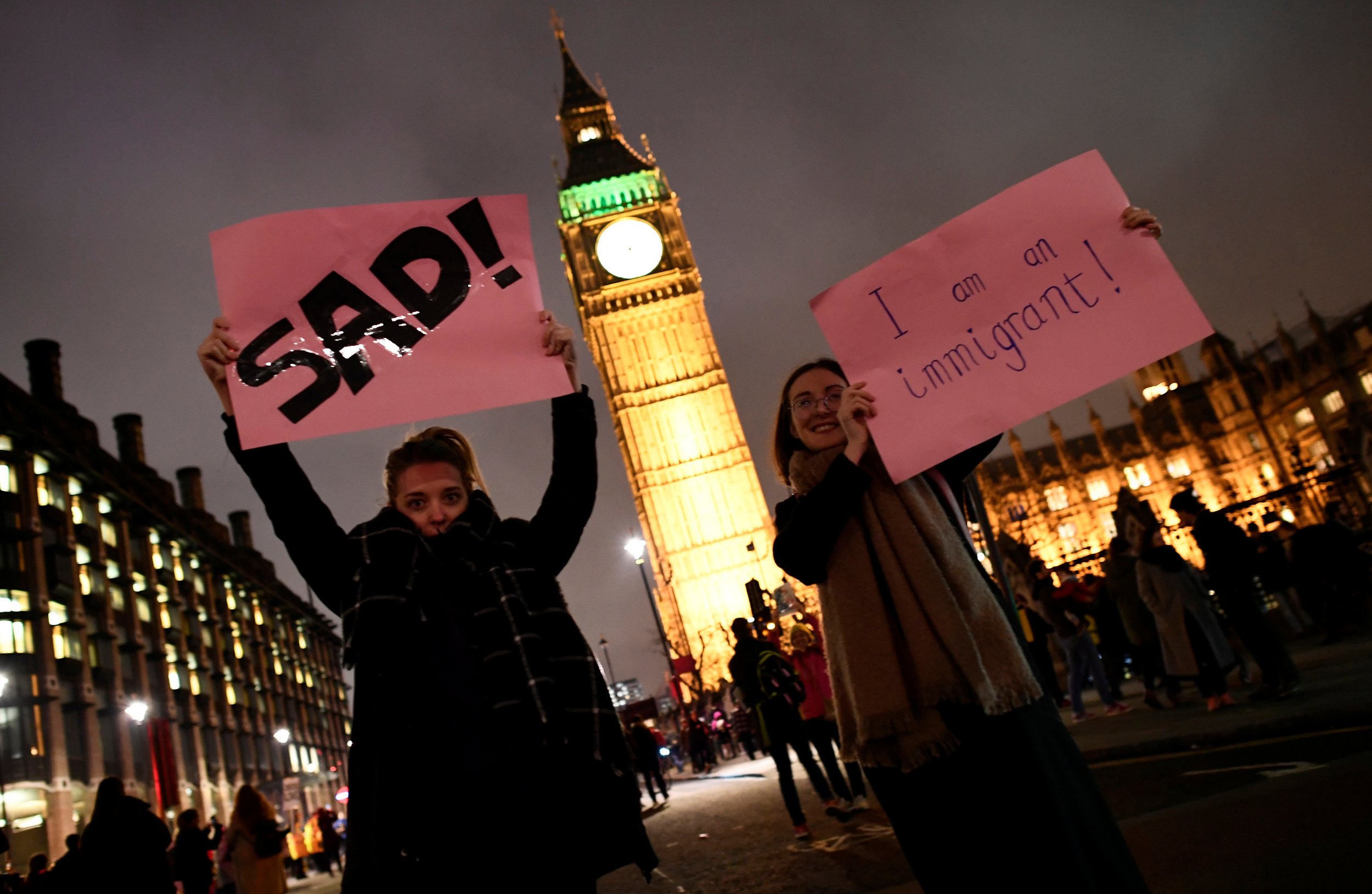
This article was originally published on The Conversation. Read the original article.
The world has been quick and loud in its condemnation of the Trump administration's ill-informed, legally suspect, and morally bankrupt new immigration policies. Alongside a travel ban on citizens of seven, Muslim majority countries, a new "refugee ban" has been the subject of fierce denunciation. Protests are planned across the U.K. against the move.
But the U.S. retreat from refugee protection only serves to underscore the gaps and weaknesses in the commitments of the rest of the world, in particular by countries like the U.K.
There are around 5m Syrian refugees—and an even greater number of internally displaced persons. In 2016, the U.S. resettled "only" around 11,000 Syrian refugees. This number still made the U.S. one of the top three destinations for resettlement of Syrians that year, and it remains behind only Canada in the number of Syrians resettled since the start of the conflict.
How the U.K. compares
The U.S. population is five times larger than the U.K.'s—318m compared to 61m. However, in the same year, according to UNHCR, the U.K. resettled less than 3,000 Syrian refugees. The U.K. government gives a slightly higher figure, though one still around a third of the U.S. figure.
Given the scale of the outflows of people from Syria, with much less fanfare, the U.K. has effectively been pursuing a similar policy to the one Trump has just put in place in the U.S.
In the same executive order, Trump announced that America's quota for resettled refugees would drop to 50,000 refugees in 2017—cut in half from the target of 100,000 set by the outgoing Obama administration.
While past performance suggests that the U.S. might struggle to meet even this lower quota (as the resettlement quotas are targets that are often missed due to processing bottlenecks, especially if "extreme vetting" is implemented), if it did it would have resettled more refugees than the U.K. has resettled over the last half century. In fact, the U.K. has only had a formal refugee resettlement program since 2004.
And the U.K. only gets close to the figure of 50,000 over the last half century by including the unprecedented movement of Ugandan Asians in the early 1970s—a population that had the right of abode in the U.K. until legislative amendments a few years earlier and that the U.K. government of the day tried its hardest to ship elsewhere.
In response to the Syrian crisis, in David Cameron promised in 2015 to resettle 20,000 Syrian refugees in the U.K. before 2020—a target MPs suggested would be missed in a report in 2016.
Barriers to claiming asylum
Ultimately, resettlement policy only affects a tiny number of refugees. Despite UNHCR estimating that over a million of the world's refugees are in desperate need of resettlement, only a small fraction of those who have endured decades of insecurity in protracted refugee situations, or have acute protection risks, are ever selected for resettlement. Meanwhile, the overwhelming majority of refugees remain in so-called "countries of first asylum"—such as Turkey, Jordan and Lebanon.
In terms of providing asylum to refugees, both the U.S. and the U.K. have been abysmal. These low numbers are not accidental. They are a deliberate outcome of a series of policies ranging from visa restrictions to interdiction efforts by immigration officers overseas, to the use of detention and forced destitution as deterrents for asylum seeking.
In 2016, the U.K. received less than 2 percent of new claims for asylum. More Syrian refugees have crossed into Jordan, Turkey or Lebanon—or even Germany—in a busy day than the U.K. or the U.S. provided first asylum to since the civil war broke out five long years ago.
The British and American policies stand in sharp contrast to those elsewhere. The states of the Middle East host the overwhelming majority of Syrian refugees, with refugees constituting a fifth of Lebanon's population.
Canada has resettled 39,000 Syrians, with 25,000 of them being resettled over a period of four months in late 2015 and early 2016. The country's prime minister, Justin Trudeau, has now offered to resettle those Syrians turned away by Trump. Germany has also opened its doors to around half a million asylum seekers.
In contrast, while Theresa May belatedly criticized the new immigration policies of the U.S, the British prime minister defended Trump's new approach to refugee protection:
The United States is responsible for the United States' policy on refugees. The United Kingdom is responsible for the United Kingdom's policy on refugees.
When it belatedly responded to Trump's executive order, the U.K. government restricted its concern to British dual nationals. The foreign secretary, Boris Johnson, has warned against "pointlessly demonising" these policies. Unfortunately, with much less fanfare and criticism, May and the U.K. have adopted very similar policies and deserve to be demonized alongside him.
Martin Jones is a lecturer in International Human Rights Law, Centre for Applied Human Rights at the University of York.
Uncommon Knowledge
Newsweek is committed to challenging conventional wisdom and finding connections in the search for common ground.
Newsweek is committed to challenging conventional wisdom and finding connections in the search for common ground.
About the writer
To read how Newsweek uses AI as a newsroom tool, Click here.








